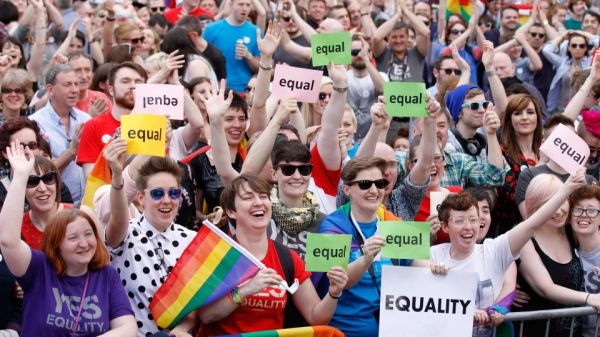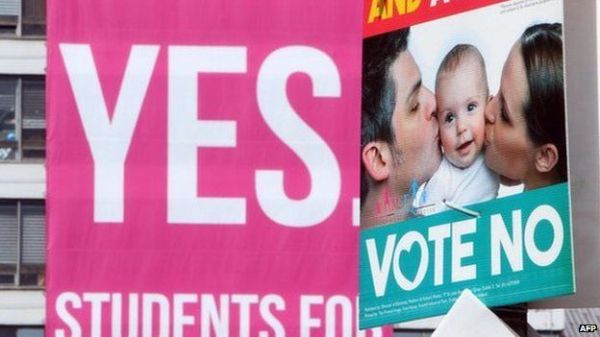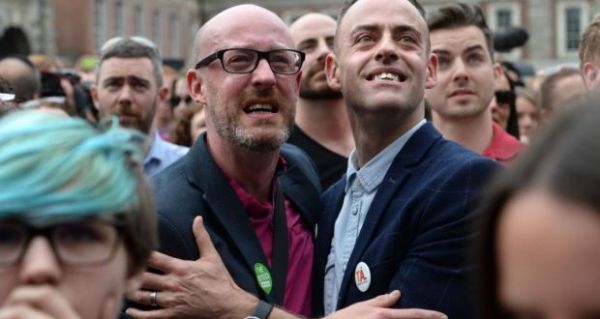Dublin leads the way in Ireland's referendum to same-sex marriage
Referendum saw over 62 per cent vote in favour of gay marriage
Dublin South had the highest yes vote, at almost 75 per cent, in the weekend referendum to change the Irish constitution regarding same sex marriage. The yes trend in Dublin was higher than the rest of the country, with the lowest yes vote in the capital at 66 per cent in Dublin North East.
The referendum was rejected by just one of the republic's 43 parliamentary consituencies: Roscommon-South Leitrim, a rural north-west area, where 51 per cent voted no.
Ireland has now become the first country in the world to bring in same-sex marriage by a popular vote. The official result was declared in front of jubilant crowds at Dublin Castle on the evening of 23 May.
A total of 1,201,607 people (62.1 per cent) voted yes and 734,300 (37.9 per cent) voted no. The total number of Ireland's 3.2 million registered voters who cast their vote was just under two million, the largest turn-out in any referendum in the history of the Irish state. These figures reflect the increased size of the electorate as well as the high numbers of voters that applied for late registration. Another key factor in the result – according to yes campaigners – was the unprecedented surge of young Irish emigrants returning to cast their vote.
The referendum allows changes to Ireland’s constitution to permit civil marriage between two people “without distinction as to their sex.” New legislation to change the constitution requires ratification by both houses of the Irish parliament and the president. Speaking the day after the result, Ireland's deputy premier Joan Burton said that the first same-sex marriages would likely take place by September.
Civil partnerships for same-sex couples have been legal in Ireland since 2010, giving couples legal protection which could be changed by the government.
The yes vote was also historic given Ireland's former reputation as a highly conservative country where homosexuality was only decriminalised in 1993. Those who voted “no” to same sex marriage were backed by the Catholic church although there was no coordinated campaigning on the part of the Church against the referendum as has happened often in the past on social issues regarding Catholic teaching.
After the vote on Sunday the archbishop of Dublin, Diarmuid Martin, described the result as a “social revolution” and said the Catholic Church in Ireland now needs “a reality check.”
The result has also led to calls for the introduction of same-sex marriage in Northern Ireland, the only region in the UK and Ireland where it is not recognised. Amnesty International has organised a March for Civil Equality in Belfast on 13 June however the notion of gay marriage will be resisted strongly by the Democratic Unionist Party (DUP) and the majority of Ulster Unionists in the devolved Northern Ireland assemby.






































